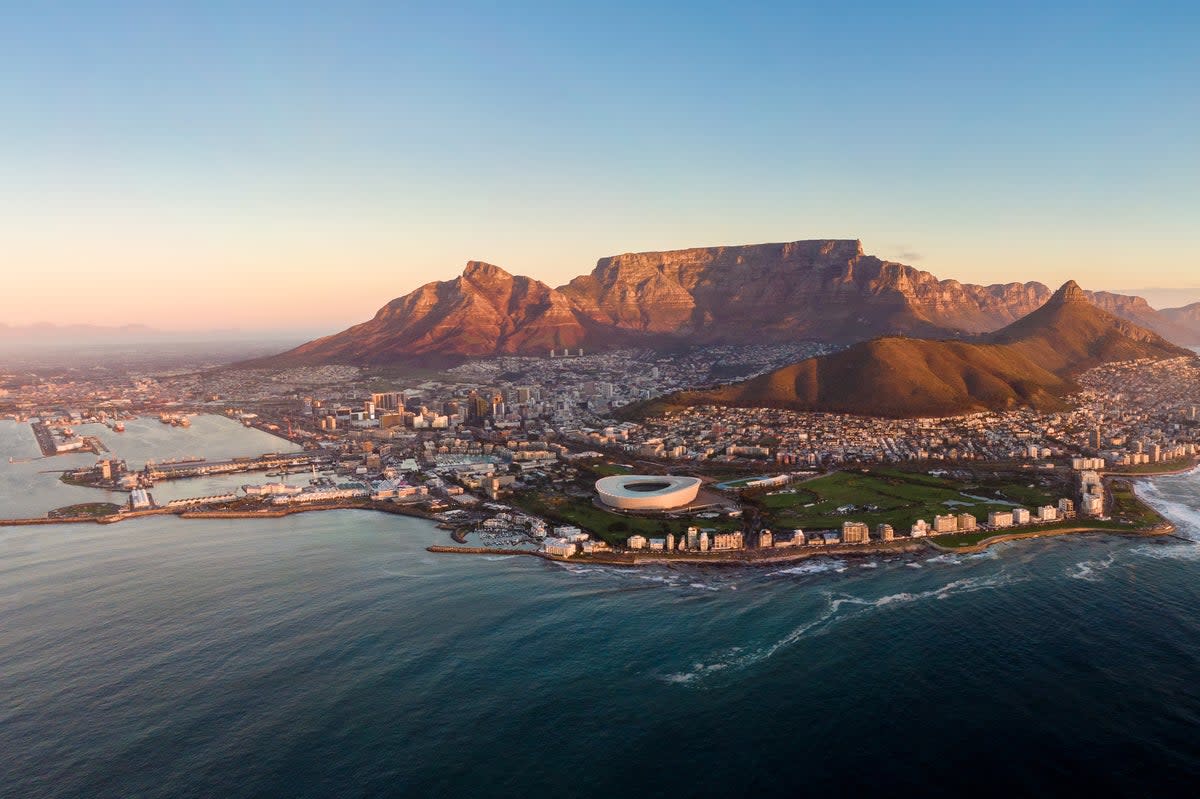The South African city to visit for the best value winter sun holiday

Cape Town has been rated as the top long-haul destination with the best value for money, beating out Asian cities such as Hoi An and Tokyo, which have previously taken the number one spot.
The South African city came out on top in the Post Office Travel Money’s annual long haul holiday cost of living barometer for the first time in six years, beating 31 other resorts and cities around the world surveyed.
Cape Town has regained its position thanks to low local prices in the city along with a weakened South African, meaning that the cost of spending time in the popular tourist destination for Brits has decreased by 12 per cent since last autumn.
The destinations were rated by how much it costs on average to buy 10 typical tourist ‘staple’ items, including a cup of filter coffee, a 330ml bottle of local lager, a 330ml bottle of cola, a 175ml glass of wine, a cocktail, a small chocolate bar, a 1.5l bottle of supermarket mineral water, a 200ml bottle of suncream, a 50ml tube/bottle of insect repellent, and a three-course evening meal for two adults including a bottle of house wine.
Costing £55.59 if bought in Cape Town, the overall price of these items has fallen to a level not seen since South Africa topped the Post Office’s chart in 2018.
Cape Town’s barometer is also over 14 per cent lower than last year’s best value destination, Hoi An in Vietnam, which has now fallen to third place in terms of value after seeing its prices rise by over 21 per cent to a total of £64.80.
Tokyo, another city that also previously topped the list, sits in second place after it surged past Hoi An with its prices falling by 13.5 per cent.
Destinations in Asia are proving to be better value for money for tourists overall, gaining three of the five best value places on the list.
For Brits who want to book a holiday seeking some winter sun during the colder months will find they will save more money than if they booked the same getaway less than a year ago in around half of the destinations.
A surge in sterling’s value against currencies in most long-haul destinations means that Brits can expect to pay less, even if local prices have risen.
The biggest price fall within the last year has been in Saint James, Barbados, in 26th place. While it does not compare to the low tourist spending prices in Cape Town, costs in the popular Caribbean spot are down by 18.5 per cent to £141.29.
However, not all long-haul locations are great value for money for British travellers, with Sydney, Australia, ranking as the most expensive destination in this year’s Post Office survey, with an average cost of £165 for the 10 tourist items. A large proportion of this is the three-course meal with a bottle of wine, costing an average of £117, making the city the priciest place to eat out.
Costa Rica and New York are also placed low down as some of the most expensive destinations, with costs of £164 and £163, respectively.
Laura Plunkett, the head of travel money at Post Office, said: “As ever, our research revealed wide variations in the cost of tourist staples across the 32 destinations we surveyed.
“This means holidaymakers could save themselves a lot of money and make a big difference to the overall cost of their winter sun trip by doing some basic holiday homework before booking to find out where meals, drinks and other staples are going to cost the least.”
Top 10 best value long-haul holiday destinations for Brits
Cape Town, South Africa - £55.59
Tokyo, Japan - £64.07
Hoi An, Vietnam - £64.80
Bali, Indonesia - £67.70
Mombasa, Kenya - £68.53
Dehli, India - £74.90
Sharm el-Sheikh, Egypt - £76.47
Colombo, Sri Lanka - £78.14
Santiago, Chile - £88.92
Montego Bay, Jamaica - £93.74
For more travel news and advice, listen to Simon Calder’s podcast


